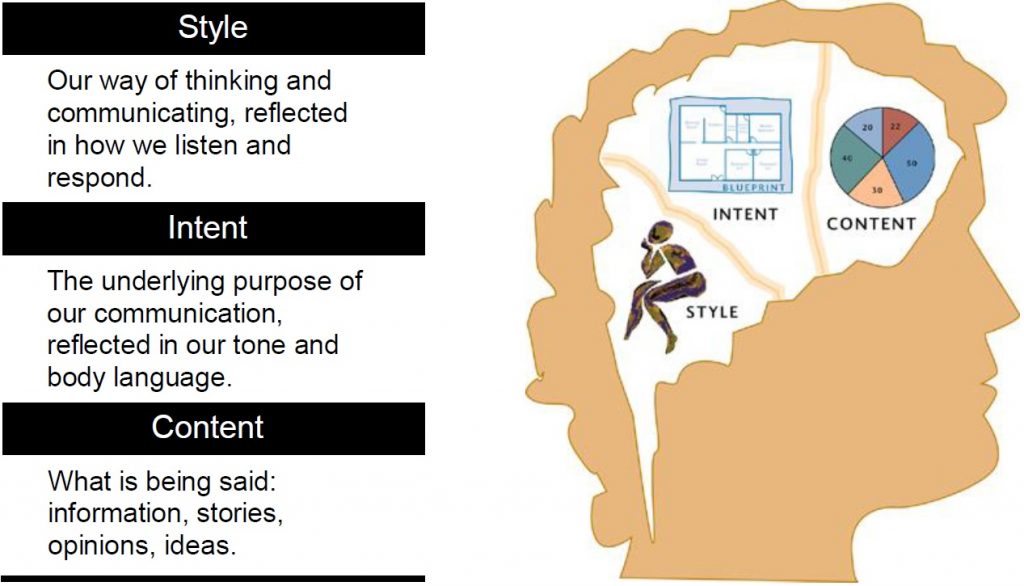In the intricate tapestry of human interaction, the fabric of communication extends far beyond mere spoken words. It is a delicate interplay of expression, meaning, and understanding. Among the myriad components of effective communication, silence emerges as a paramount element, often overlooked and underappreciated. The Bahá’í teachings illuminate the significance of silence, presenting it not merely as an absence of sound but as a profound element of thoughtful engagement.
Silence, in its essence, acts as the orchestra that tempers the cacophony of verbal communication. It is akin to the pauses in a symphony, where absence amplifies the beauty of the notes that follow. Just as a composer strategically places rests to create emotional depth, so too does silence enrich discourse by allowing for reflection, contemplation, and a deeper understanding of the sentiments being expressed.
In the Bahá’í faith, silence is valorized as a platform for introspection and spiritual growth. It serves as an invitation to step back from the fervor of dialogue and engage with the quietude within oneself. This inner silence cultivates clarity and enables individuals to discern genuine thoughts and emotions. In a world often characterized by rapid exchanges and superficial discourse, the Bahá’í teachings encourage practitioners to embrace silence as a sanctified space for reflection and deeper connection.
Moreover, silence fosters an environment where others feel heard. When individuals occupy a space of tranquility, their presence becomes a catalyst for others to articulate their thoughts freely. This dynamic transforms communication into a shared journey rather than a battleground of competing ideas. Listening, paired with silence, creates a fertile ground for empathy to flourish, nurturing mutual respect and understanding.
Conversely, excessive reliance on verbal communication may lead to misunderstandings and misinterpretations. Bahá’í principles underscore the idea that words, while powerful, can be insufficient in conveying the nuances of heartfelt sentiments. Silence, therefore, plays an instrumental role in bridging gaps that language may not effectively navigate. Just as the silence of the night allows one to appreciate the brilliance of the stars, the silence in communication allows for the revelation of deeper truths, transcending linguistic barriers.
The concept of silence as a component of wisdom echoes throughout Bahá’í literature. It is a reminder that meaningful communication often mandates discernment in one’s words. Excessive chatter can obscure the essence of dialogue, diminishing the significance of what truly matters. As Bahá’í teachings suggest, the pursuit of truth requires an ethical commitment to listen, to understand, and at times, to remain silent. Silence becomes a sanctuary where unspoken truths are acknowledged, respected, and ultimately embraced.
In the broader context of community building, silence is indispensable. The Bahá’í vision articulates the importance of fostering an environment conducive to open dialogue, yet recognizes the transformative power of silence in facilitating collective deliberation. When communities allow for periods of silence, members can engage in thoughtful consideration of diverse perspectives. This practice nurtures unity and harmony, empowering individuals to come together in shared understanding.
The art of silence also intersects with self-control, an essential virtue within the Bahá’í framework. The conscious decision to withhold words during heated discussions is a testament to maturity and spiritual development. It indicates an awareness of the potential repercussions of one’s utterances and reflects an understanding that some conversations are better served with strategic pauses rather than impulsive reactions. Silence, in this context, becomes a form of discipline that safeguards relationships and reinforces the bonds of community.
Furthermore, silence can be a powerful tool in conflict resolution. The teachings of the Bahá’í faith emphasize the importance of dialogue as a means of healing and reconciliation. However, silence allows for the cooling of tempers and the alleviation of emotional turmoil, creating a more conducive atmosphere for productive discussions. By embracing silence, individuals can often diffuse tension, facilitating an environment where respect prevails over discord.
At its core, silence invites authenticity into communication. It propels individuals to engage with integrity and sincerity, allowing them to delve beneath surface-level interactions. When silence is employed thoughtfully, it encourages a level of introspection that enables one to articulate their thoughts with clarity and fairness. The Bahá’í teachings, therefore, serve as a gentle reminder that silence is not a void to be filled, but a meaningful interval to be cherished.
In conclusion, the Bahá’í teachings highlight the transformative and pivotal role of silence in communication. It is a multifaceted instrument that fosters introspection, empathy, and understanding while also acting as a critical element in cultivating community and harmony. As the world continues to evolve and communication dynamics change, the reminder of silence’s eloquence resonates profoundly. This quietude nourishes relationships, cultivates divine attributes, and ultimately serves as a conduit for deeper, more meaningful connections. In a landscape oversaturated with noise, the ability to embrace silence becomes an art—one that enriches the communicative tapestry of our shared human experience.
